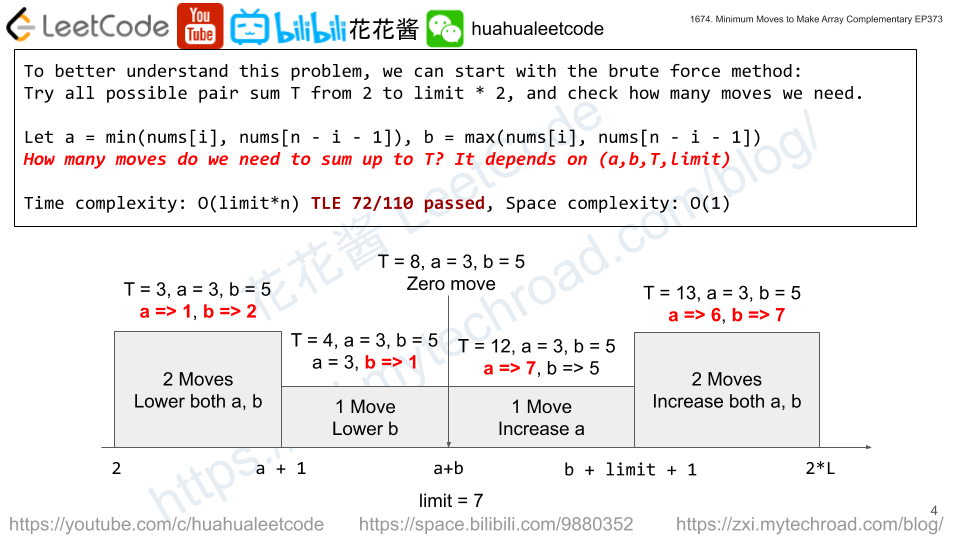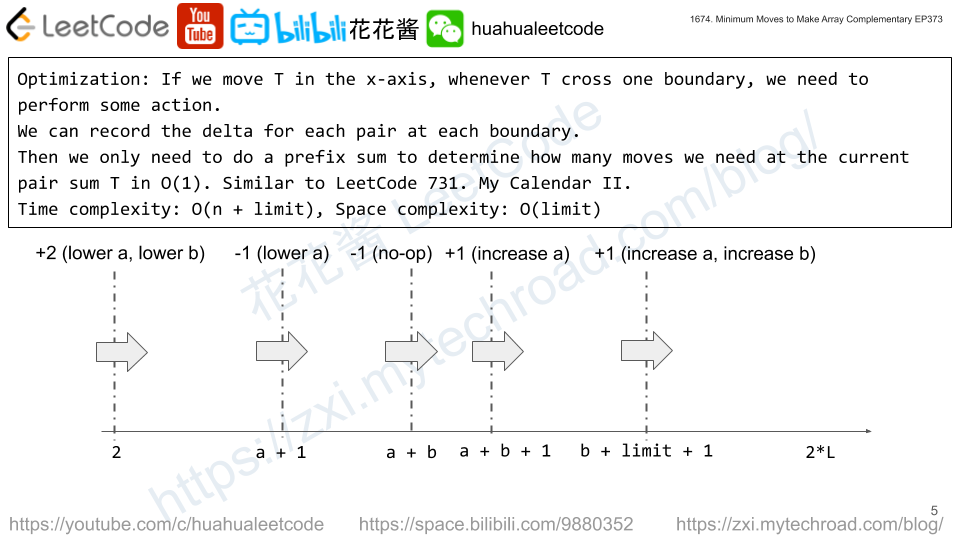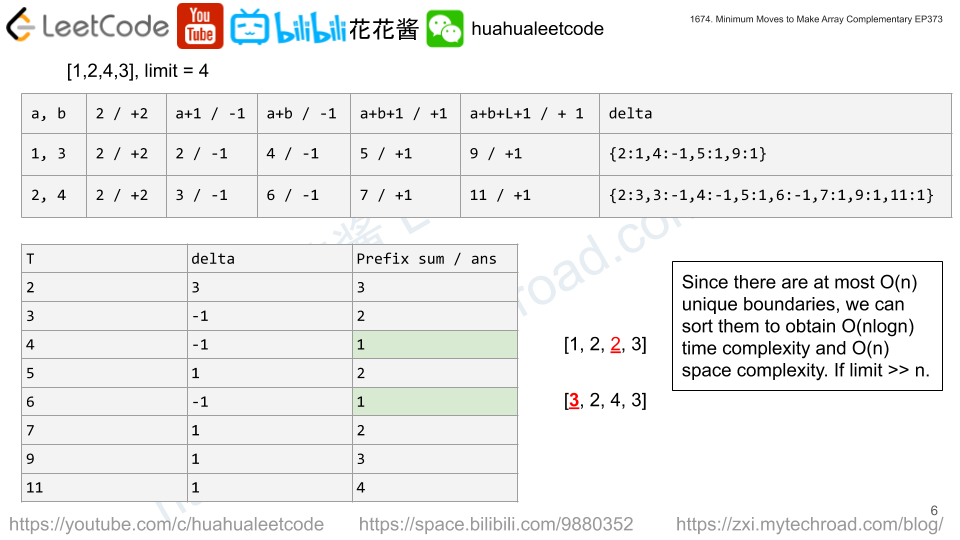Given an array nums of distinct positive integers, return the number of tuples (a, b, c, d) such that a * b = c * d where a, b, c, and d are elements of nums, and a != b != c != d.
Example 1:
Input: nums = [2,3,4,6] Output: 8 Explanation: There are 8 valid tuples: (2,6,3,4) , (2,6,4,3) , (6,2,3,4) , (6,2,4,3) (3,4,2,6) , (4,3,2,6) , (3,4,6,2) , (4,3,6,2)
Example 2:
Input: nums = [1,2,4,5,10] Output: 16 Explanation: There are 16 valids tuples: (1,10,2,5) , (1,10,5,2) , (10,1,2,5) , (10,1,5,2) (2,5,1,10) , (2,5,10,1) , (5,2,1,10) , (5,2,10,1) (2,10,4,5) , (2,10,5,4) , (10,2,4,5) , (10,2,4,5) (4,5,2,10) , (4,5,10,2) , (5,4,2,10) , (5,4,10,2)
Example 3:
Input: nums = [2,3,4,6,8,12] Output: 40
Example 4:
Input: nums = [2,3,5,7] Output: 0
Constraints:
1 <= nums.length <= 10001 <= nums[i] <= 104- All elements in
numsare distinct.
Solution: HashTable
Similar idea to 花花酱 LeetCode 1. Two Sum
Use a hashtable to store all the pair product counts.
Enumerate all possible pairs, increase the answer by the same product counts * 8.
Why time 8? C(4,1) * C(1,1) * C(2,1) * C(1,1)
For pair one AxB, A can be placed at any position in a four tuple, B’s position is then fixed. For another pair CxD, C has two positions to choose from, D is fixed.
Time complexity: O(n^2)
Space complexity: O(n^2)
C++
|
1 2 3 4 5 6 7 8 9 10 11 12 13 |
// Author: Huahua class Solution { public: int tupleSameProduct(vector<int>& nums) { const int n = nums.size(); unordered_map<int, int> m; int ans = 0; for (int i = 0; i < n; ++i) for (int j = 0; j < i; ++j) ans += 8 * m[nums[i] * nums[j]]++; return ans; } }; |


